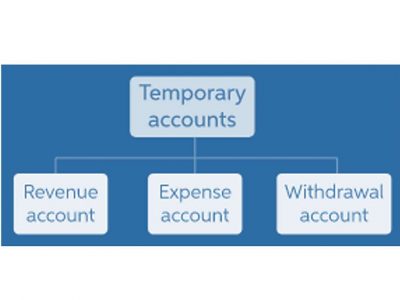
Consulting with a tax professional can help ensure compliance while optimizing tax savings. As tax policies evolve, staying updated on potential legislative changes is crucial for effective financial planning. The Massachusetts Department of Revenue offers a free and secure online tax filing system called MassTaxConnect. Residents can use this platform to file their state tax returns, make payments, check the status of their refund, and manage their tax accounts electronically.
How is income taxed in Massachusetts?
Here you can find how your Massachusetts is based on a flat tax rate. When you prepare your return on eFile.com this is all calculated for you based on your income. Most refunds are claimed on Coffee Shop Accounting an original return and will be issued automatically by the Department. For e-filed returns the turnaround time is about 6 weeks; but for paper returns it could take up to 10 weeks.
All Ordinary Income articles
- Many of the tax changes in the federal reconciliation act flow through to state tax codes—automatically in some states, and subject to an update in states’ Internal Revenue Code conformity date in others.
- Capital gains in those categories are included as taxable income on the Massachusetts income tax return.
- As of 2021, Massachusetts has a flat income tax rate of 5.00% for all taxpayers, regardless of their income level.
- Qualifying deductions might include an itemized deduction, the Massachusetts standard deduction, exemptions for dependants, business expenses, etc.
- Personal income tax exemptions directly reduce how much tax you owe.
- The Commissioner will release the lien by issuing Certificate Releasing Massachusetts Estate Lien.
DOR has posted instructions for married taxpayers subject to the surtax with different residency or periods of residency for tax year 2024. To the extent that income from the sale of a personal residence is otherwise subject to the personal income tax, it is also included in the calculation of annual taxable income when determining the 4% surtax. There is no exclusion from the 4% surtax for income from the sale of a personal residence that is otherwise included in annual taxable income. A tax item from Part A, Part B, or Part C can reduce taxable income in another part only to the same extent it is otherwise permitted under the relevant statute. For example, under chapter 62 of the M.G.L., excess Part B losses may be deducted against capital gains attributable to a taxpayer’s trade or business when determining Part A or Part C taxable income. However, once taxable income in each part is determined, a negative amount in one part cannot be used to reduce taxable income in another part when determining the 4% surtax.
- The 2022 tax rates and thresholds for both the Massachusetts State Tax Tables and Federal Tax Tables are comprehensively integrated into the Massachusetts Tax Calculator for 2022.
- The estate tax is a transfer tax on the value of the decedent’s estate before distribution to any beneficiary.
- However, it is important to note that there is no fixed schedule for changing tax rates and brackets, and the frequency of changes can vary based on the state’s fiscal situation and legislative priorities.
- Using deductions is an excellent way to reduce your Massachusetts income tax and maximize your refund, so be sure to research deductions that you mey be able to claim on your Federal and Massachusetts tax returns.
- Unlike the 6.25% sales tax, which is collected by sellers, use tax is generally paid directly to the state by the purchaser.
Temporary Authorized Training Tax Credit for Emergency Assistance

62C, §§ 11 and 12 require C corporations to file their tax returns on or before the 15th day of the fourth month following the close of each taxable year. The filing due date for S corporation tax returns is the 15th day of the third month following the close of each taxable year. If the sum is equal to or less than the surtax threshold, the required personal income tax withholding amount is 5% of the supplemental wage payment. All taxpayers subject to the 4% surtax must file their returns and make all payments electronically. Only the portion of a taxpayer’s taxable income that exceeds the surtax threshold for a tax year will be subject to the 4% surtax.

How does the 4% surtax on personal income tax withholding apply to supplemental wage payments, such as bonuses?
Let’s consider an individual who has a taxable income of $350,000 in Massachusetts state. This individual would qualify for the $4,400 standard deduction, reducing his or her taxable income to $345,600, putting them in the 9% tax bracket. Massachusetts, like the federal government, uses a progressive tax system, which means that different portions of the individual’s income are taxed at the different rates corresponding to the brackets they fall into. The Earned Income Tax Credit (EITC) is a significant tax credit in the United States, designed primarily to benefit working individuals and families with low to moderate income. As a refundable credit, the EITC not only reduces the amount of tax owed but can also result in a refund if the credit exceeds the taxpayer’s total tax liability. This makes the EITC a powerful tool for reducing poverty, incentivizing work, and providing financial support to those who need it most.

State residents who would like to https://guardianskylda.com/operating-cycle-calculation/ contribute more to the state’s coffers also have the option to pay a higher income tax rate. Yes, in Massachusetts, there are different tax rates for different types of income. Massachusetts has a flat income tax rate for all types of income, which is currently set at 5.0%. This means that regardless of whether the income is from wages, interest, dividends, or capital gains, it is all taxed at the same rate. However, it is important to note that Massachusetts does have a separate tax rate for long-term capital gains, which is taxed at a rate of 12%. So, while most types of income are subject to the flat 5.0% tax rate, long-term capital gains are taxed at a higher rate of 12%.

As a result of the progressive tax system, however, not every dollar they earn will be taxed at that rate. As you can see from the table, the 35% bracket begins at $250,525 of income. This means that the dollars the individual earns over $250,525 will be taxed at 35%. But dollars below that amount will be taxed at the rate corresponding to the brackets they fall into. Income taxes are taxes imposed on individuals or entities mass state tax brackets that earn income. For purposes of this article, we’ll be focusing on “ordinary income,” which is the income that you earn from work or from your small business, as well as rental income, interest, royalties, and retirement income.
- Long-term capital gains from investments are taxed at 5 percent in Massachusetts, and short-term capital gains are taxed at 8.5 percent.
- Massachusetts collects a state income tax at a maximum marginal tax rate of %, spread across tax brackets.
- Your filing status on your Massachusetts personal income tax can affect your exemptions and how much you’re taxed.
- Short-term capital gains, which are realized in less than a year, are taxed at a rate of 8.5%, as are long-term gains on the sales of collectibles.
- Additionally, electronic filing may also be required for certain tax situations, such as when claiming certain tax credits or deductions.
Filing taxes online can be convenient and efficient as it reduces the likelihood of errors in the filing process, speeds up processing times, and provides confirmation of successful submission. Additionally, electronic filing may also be required for certain tax situations, such as when claiming certain tax credits or deductions. The federal income tax is a tax that the United States government levies on the annual earnings of individuals, corporations, trusts, and other legal entities. This tax is progressive, which means the tax rate you pay — the percentage of each additional dollar that goes to the government — increases as your income increases. For individuals, the income tax rates on ordinary income (as distinguished from capital gains) start at 10% and increase up to 37% as your income tax bracket increases.

